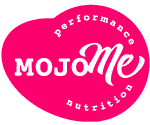Intermittent fasting 16:8 is an eating programme where you cycle between periods of fasting and eating. It’s the most popular IF method used to accelerate weight loss, longevity and prevent chronic disease. The 16:8 method involves a fasting window of 16 hours and an eating window of 8 hours during which you consume all of your calories.
During your 16-hour fasting window, your body undergoes several metabolic changes. Ultimately, fasting causes your body to enter ketosis[*], a metabolic state which uses stored body fat for energy because carbohydrates are unavailable[*].
Intermittent fasting causes insulin levels to decline and promotes autophagy, the process by which your body rids itself of cells that are either damaged, harmful or no longer required.
There is evidence that intermittent fasting 16:8 (IF) can promote weight loss[*], lower blood sugar, improve heart health and reduce inflammation[*]. Fasting can reduce your risk of chronic diseases such as obesity-related non-alcoholic fatty liver disease, diabetes[*] and cancer.
What Can You Eat While Fasting?
By definition, fasting means refraining from eating or triggering your body’s digestive processes. However, you can consume some beverages to remain hydrated and to feel satiated while preserving the benefits of fasting.
Some studies also show that if your carbohydrate intake remains below 50 grams per day during your fasting window, you will stay in ketosis[*].
Intermittent Fasting 16:8 – Foods and Beverages You Can Consume While Fasting.
1. Water
Staying hydrated is the most critical factor of a successful fast. For intermittent fasting 16:8 to be successful, it’s essential to stay hydrated to support the health of every major organ in your body! The volume of water you need to drink can vary from one person to the next, but your urine should be pale yellow at all times. Dark yellow urine indicates dehydration which can lead to headaches, fatigue and feeling light-headed. Choose still or sparkling water and avoid flavoured water which may contain hidden carbohydrates. If the thought of plain water doesn’t excite you, try adding a squeeze of lemon with a teaspoon of apple cider vinegar. It’ll be our little secret!
2. Coffee and Tea
Best consumed without added sugar, milk or cream. However, you may find that adding a small amount of full cream milk (healthy fats) curbs any hunger pangs.
3. Bulletproof Coffee
Coffee containing MCT Oil, Powder or Collagen Creamers are ketogenic favourites. Too many may break your fast, but won’t take you out of ketosis and can keep you feeling fuller for longer.
4. Apple Cider Vinegar
Drinking 1-2 teaspoons apple cider vinegar diluted in water is a great way to remain hydrated and can prevent cravings.
5. Bone Broth
Low GI collagen and bone broths are excellent sources of protein, and essential nutrients to help replenish electrolytes lost from only drinking water while fasting.
Too Many Calories Will Break Your Intermittent Fast
As a general rule, as long as your beverage contains less than 50 calories your body will remain in its fasted state. And as long as your carbohydrates also remain low, you won’t be thrown out of ketosis. Any foods and drinks that contain more than 50 calories will technically break your fast.
What To Eat to Break Your Fast
To break your fast, eat clean foods and be sure not to overeat.
Avoid breaking your fast with processed foods. Foods high in sugar or even high-fibre nuts and seeds can be challenging to digest, resulting in unwanted bloating and discomfort.
To avoid this and to prevent spiking your blood sugar which will take you out of fat-burning mode, consume nutrient-dense foods that are low in carbohydrates, easily digested and contain some protein:
Smoothies
Blended beverages are a great way to re-introduce nutrients since they contain less fibre than whole fruits and vegetables.
Broths & Soups
High protein collagen broth packed with all the goodness of bone broth contains a mere 43 calories per serving. Virtually fat-free, sugar-free, zero carbs, it’s rapidly digested and absorbed. Avoid soups made with cream or a large amount of high-fibre raw vegetables.
Healthy Fats
Avocados, rich in potassium are a great first food to eat after a fast. They are high calorie but the monosaturated fat (good fat) in avocado is extremely satiating and can keep you feeling full for hours.
Break your fast with nutrient-dense foods that are easily digested and can help to replenish nutrients and electrolytes before you return to normal eating.
Overeating and consuming junk foods between fasts can cancel out all of the health benefits of fasting. Instead, choose unprocessed nutrient-dense wholefoods and continue to drink plenty of water.
